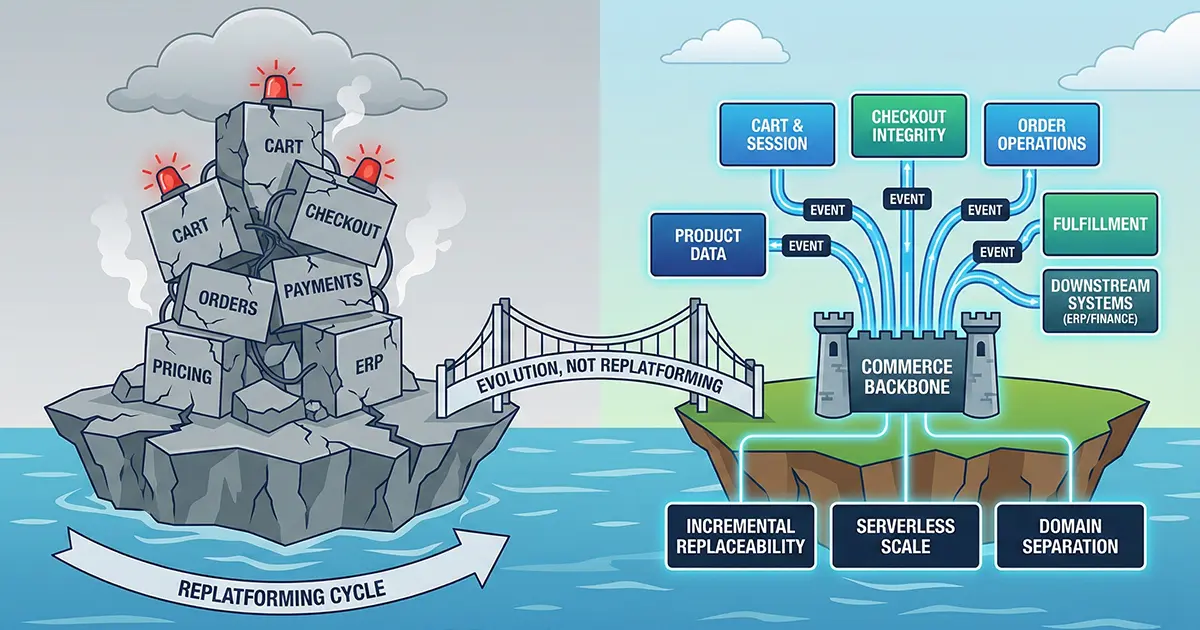How to Sleep Better During Black Friday

Black Friday, a love and hate thing for eCommerce merchants, is synonymous with digital traffic spikes and hopefully heightened sales. It often keeps people up at night worrying about website performance and scalability.
But imagine a Black Friday where website crashes are a thing of the past, and bad sleep due to scalability concerns are just old tales. This isn't a far-fetched dream. The serverless and cloud-native development has made it a reality. Today. So, let's be frank: the traditional ways of manually handling resources and capacity during peak times should be considered obsolete.
Understanding the strategic value of serverless and cloud-native applications becomes important in the context of Black Friday and similar events. These technologies represent a new way of thinking and an actual working solution for merchants stressing over their infrastructure.
A bit of Black Friday background
First, a bit of background. Tracing back to the 1960s, the journey from mainframes to where we are today has been marked by a constant quest for efficiency. The 2010s finally ushered in the serverless era, focusing on resource optimization, virtualization, and cost-effective scalability. Serverless computing, a key aspect of cloud-native applications, is distinguished by its ability to manage computing resources dynamically. And that’s excellent news for merchants.
From Black Friday hell to heaven
A good example of this is one of our major customers. Earlier, they struggled with resource allocation during Black Friday and significant campaigns. They had to guesstimate resource needs, almost always leading to over-allocation, which in turn meant wasted resources and high costs. Sound familiar?
The below image of a recent campaign illustrates (blue line) how they would have manually added (and paid for) resources to ensure smooth running during the campaign.

After transitioning to Brink Commerce API, they experienced a significant shift. The need for guesswork was eliminated, resources were optimized, and efficiency was markedly improved, showcasing the transformative power of cloud-native solutions. As you can see below (blue line), resources scale automatically to always ensure optimized allocation.

Serverless: A New Paradigm
As an integral part of cloud-native applications, serverless computing offers a transformative approach to digital commerce. It involves:
- Dynamic Resource Allocation: Automatically scaling resources to meet demand.
- Cost Efficiency: Paying only for the resources used, eliminating wasteful expenditure.
- Operational Agility: Quick adaptation to market changes without the burden of server management.
During events like Black Week, serverless computing shines by providing unparalleled scalability. It enables merchants to:
- Automatically Scale: Adjust to traffic surges without manual intervention.
- Focus on Business Goals: Shift attention from infrastructure management to customer engagement and sales strategies.
- Real-time Threat Detection: Stay one step ahead with our WAF's real-time threat detection capabilities. We identify and neutralize potential threats before they can even reach your web applications, ensuring airtight security.
If you’re still wondering whether to adopt serverless and cloud-native technologies, let’s be clear: this is not a choice but a necessity for staying relevant. It’s a strategy for those who dare to lead, not just follow. For those who envision a Black Week where the only concern is meeting demand, not managing disaster.
As we look towards future Black Weeks, the question isn’t if you will adopt these technologies, but when. The serverless evolution isn’t coming; it’s already here.
If you want to discuss further, feel free to get in touch.
Now, on to the Christmas shopping period.
Want to know more about modern commerce?
Get in touch with us to get the discussion started?
Get in touch










